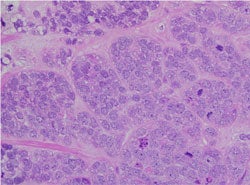Contralateral Breast Cancer
 WECARE: The Women’s Environment, Cancer And Radiation Epidemiology Study
WECARE: The Women’s Environment, Cancer And Radiation Epidemiology Study
One in eight women will develop a primary breast cancer during her lifetime and 5-10% of these women will subsequently develop a second primary cancer in the contralateral breast. The increasing incidence of breast cancer, coupled with improved survival after cancer diagnosis, places an increasing number of women at risk for developing a second primary breast cancer, yet the genetic epidemiology of second primary breast cancer is complex and poorly understood. A few genes such as BRCA1 and BRCA2, when mutated, have been associated with increased risk of bilateral breast cancer, but these genes only account for a small fraction of the cases diagnosed each year. Thus, as yet unidentified susceptibility genes and environmental exposures, acting either separately or in a combination, are likely responsible for the majority of bilateral breast cancers.
Among the environmental exposures that may contribute to the risk of second primary breast cancer are the therapies used to treat the first primary. A number of studies have shown that the risk of developing a second primary is elevated among women who receive radiation therapy for their first cancer, particularly among those treated at an early age and who survive at least 5 years. Although it’s effectiveness as a therapy for local stage breast cancer remains unchallenged, there is little information available to guide clinicians and patients as to the possible risk of second primary breast cancer related to radiation therapy. The development of genetic profiles that reflect a woman’s susceptibility to cancer, particularly in the context of radiation treatment/exposure, would be an important first step towards creating effective individualized therapy for long-term patient management. Individualized dosing according to genotype could contribute to increased efficacy and decreased morbidity among patients treated for cancer. The WECARE Study, a large, collaborative, multi-site study of 1400 women with unilateral breast cancer and 700 women with bilateral breast cancer seeks to identify both genetic and environmental risk factors for second primary breast cancer.
